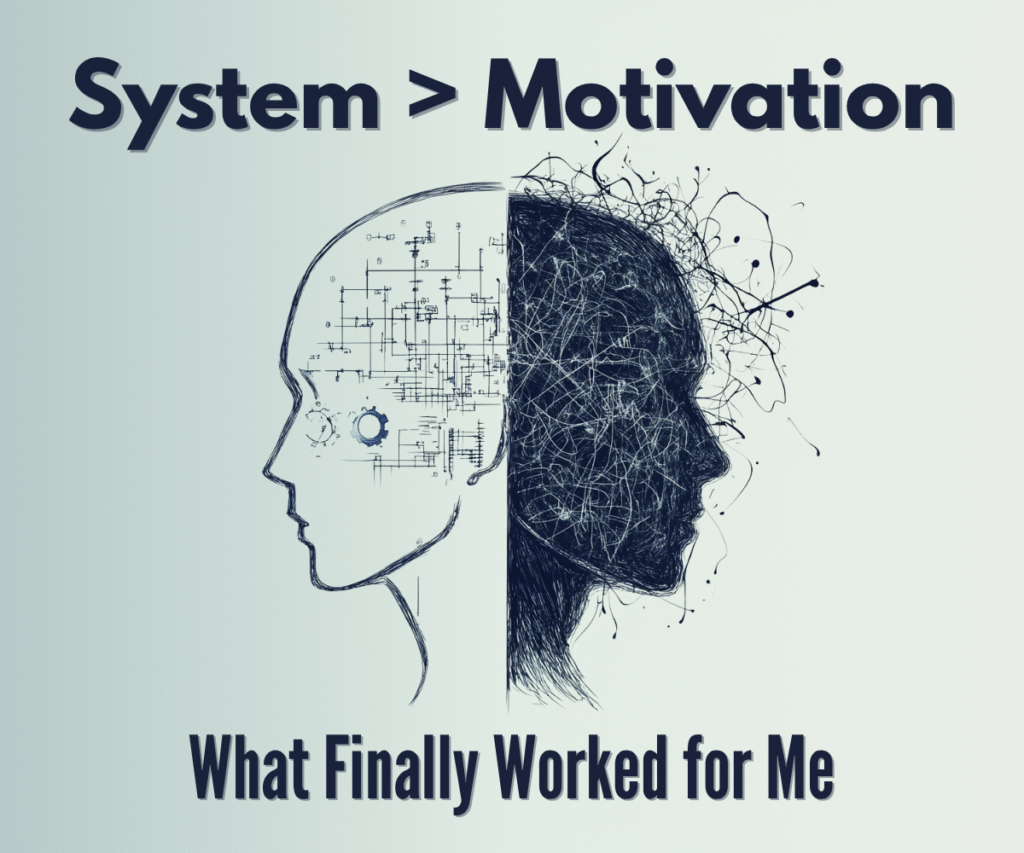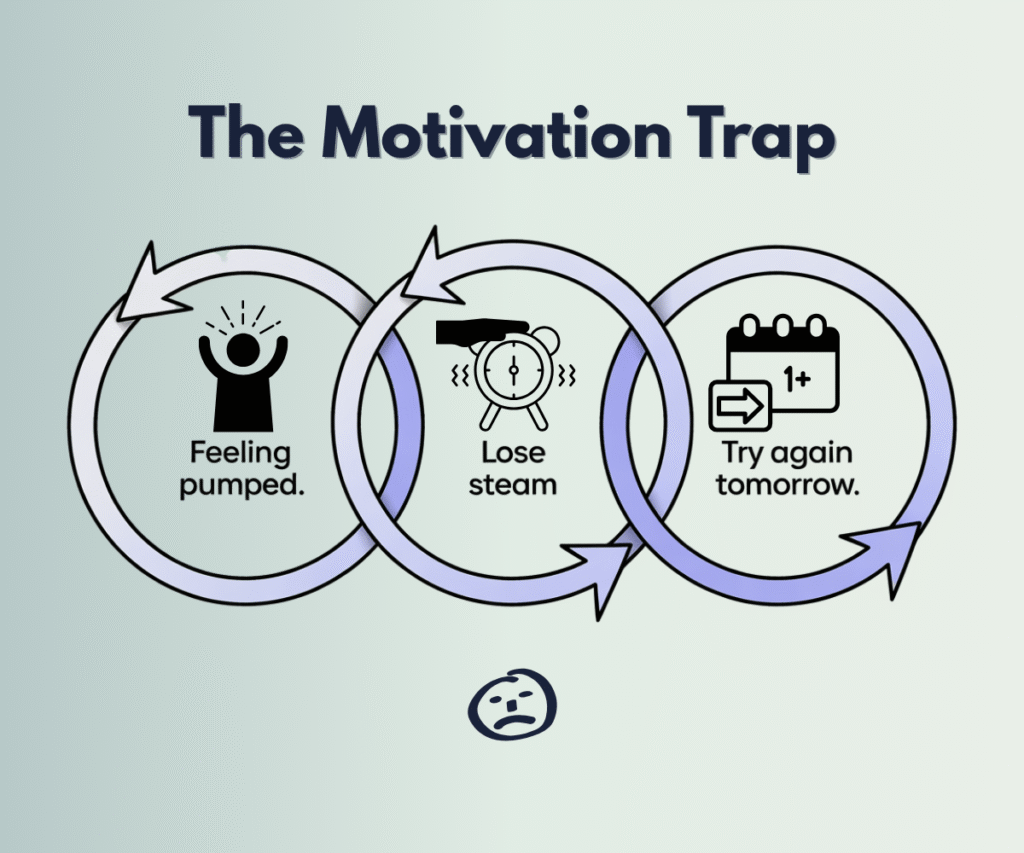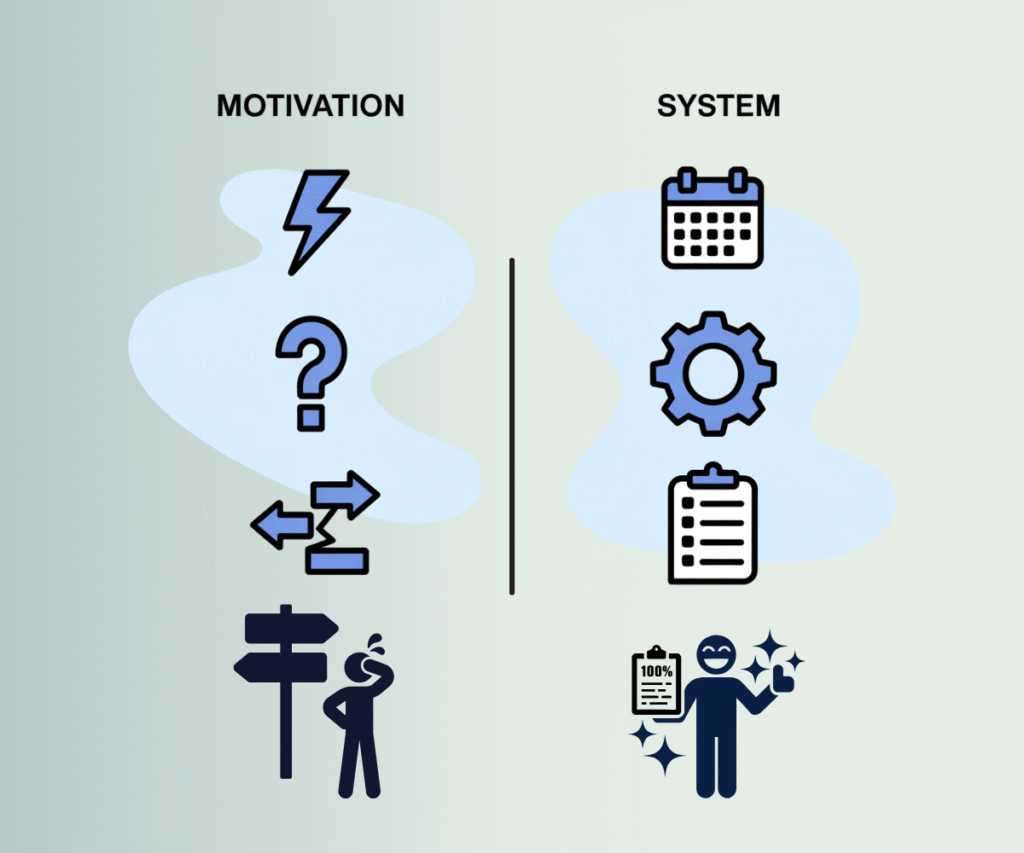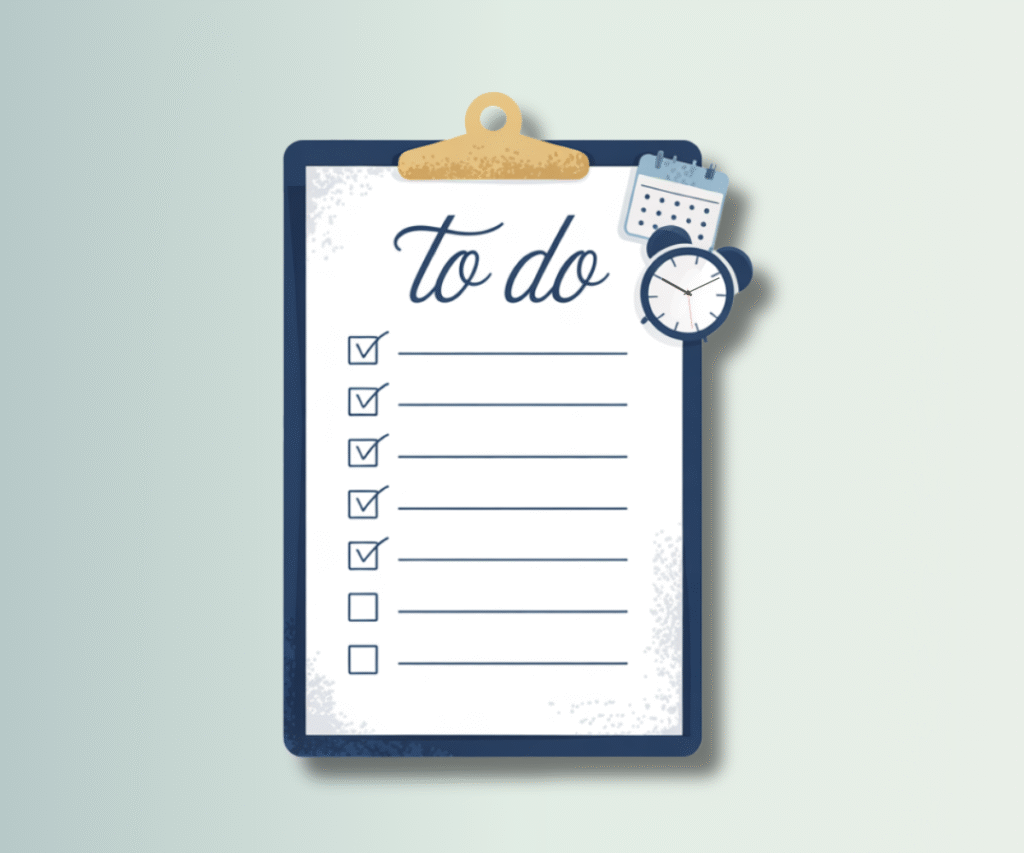Systems Over Motivation:
Why Discipline Wins Every Time

Everyone thinks motivation is the secret. Yes, mindset is everything but what happens on the days when you wake up tired, distracted or uninspired? This is me half the time! Sometimes it’s just hard to find the motivation. Systems over motivation is the shift that changed everything for me.
In this post, I’ll break down why motivation sometimes fails, how systems work better and how you can start building your own routine that runs on discipline… not mood.
The Motivation Trap
Motivation feels great until it vanishes. One day you’re pumped, ready to start a new habit or build your dream life. The next, you’re hitting snooze and convincing yourself tomorrow will be better. That’s the trap and it’s a vicious cycle.

Motivation is a mood, not a strategy.
Most people wait until they “feel ready.” But readiness is unreliable. If you only show up when you feel like it, you’ll never build consistency. You’ll never stick to that workout plan, finish that book or grow your business.
I can remember days where I swore I’d get something done. But when the coffee wore off, so did the action. That’s the truth about motivation. It’s not bad, it’s just not enough.
If you want to live with intention, you can’t rely on inspiration to carry you. You need something sturdier.
Systems Create Stability
A system is just a repeatable structure that removes guesswork. It doesn’t rely on how you feel that day. It’s the decision you made ahead of time, now running on autopilot.
Think about brushing your teeth. You don’t wake up debating it. You just do it. That’s the power of a system. Or your day job. Whether you feel like it or not, you have to be there at a certain time and if you miss too many days — you’re outta there!
When I started treating my goals the same way, things changed quickly. I built a system for my workouts: same days, same times, no debate. I built a system for writing, morning sessions before distractions hit and no phone allowed. These aren’t based on energy or inspiration, they’re baked into the routine.
The beauty of systems is that they don’t care if you’re tired, unmotivated, in a bad mood or stressed out. They carry you when your feelings won’t.
And that’s what makes them so effective, especially when you impose a “non-negotiable policy.“

Discipline Without the Drama
Discipline gets a bad rap. People hear the word and think of punishment, restriction or some rigid military lifestyle. But real discipline is quiet. It’s not about forcing yourself, it’s about freeing yourself.
When you build habits that support your goals, you stop battling yourself every day. You don’t waste energy deciding whether or not to do the thing. You just do it. And then you move on with your day and your self-esteem is raised in the process.
That’s the real win: less mental drama and more flow or as I like to say — less talk, more rock.
For me, discipline looks like prepping my day the night before. Laying out gym clothes, knowing what I’m writing, planning what matters and getting to sleep early. It’s boring on the surface, but powerful in practice. It’s like having your own war room and strategizing your success.
You don’t need to hype yourself up when you’ve got systems that reduce decisions. You just need to show up and let the structure carry the weight.
Making Systems Over Motivation Practical
It’s one thing to understand that systems work better than motivation, but it’s another to actually build one. Start by asking yourself:
- Where in my life am I relying on motivation to get things done?
- What would it look like to build a system instead?

Here’s a simple way to shift:
- Pick one area where you keep starting and stopping (workouts, writing, diet, etc.)
- Create a low-friction routine that fits your life. Something you can stick to even when you’re not “feeling it.” It has to be doable with a focus on consistency.
- Schedule it like a meeting. Same time, same days, no guesswork and non-negotiable.
- Remove decisions ahead of time (lay out clothes, pre-plan meals, prep writing topics).
- Track it for a few weeks. Not to be perfect, just to stay aware. Make a checklist.
You don’t need to change everything at once. Systems are built one small decision at a time. Stack them, and eventually your days start running smoother, like a well-oiled machine. Now your goals stop getting placed on the back burner. That’s the whole point of systems over motivation, you don’t have to feel ready to follow through.
Need a break to reset your routine?
Sometimes clarity comes when you leave your environment.
Search flights here and give yourself some space to think.
Closing Thoughts
Motivation might get you started, but it won’t keep you going. Good systems will.
When you build habits that run no matter how you feel, you stop waiting for the perfect mood and start creating real momentum. This is where the shift happens. Not in some motivational high, but in the quiet consistency of showing up. This is the law of compounding applied to your life.
If you’ve never read about this idea, here’s a quick summary of The Compound Effect by Darren Hardy — worth checking out.
So here’s the question worth asking:
What could your life look like if you stopped relying on motivation and started relying on yourself?
